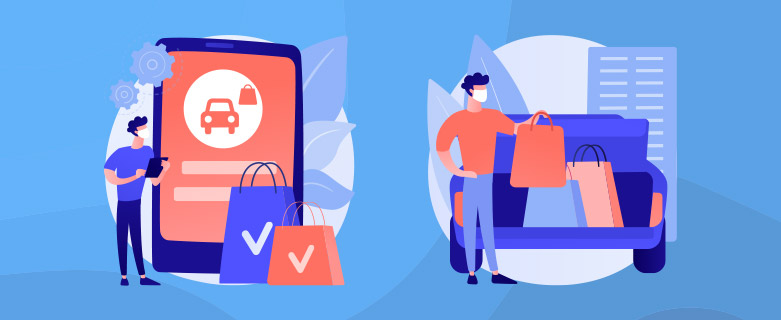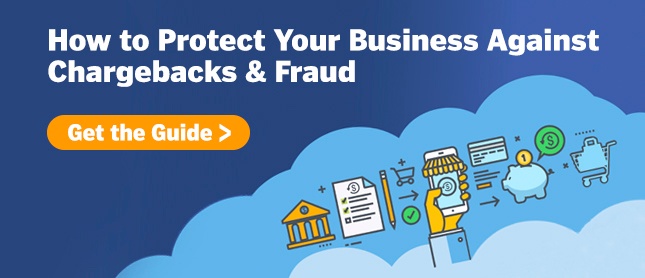
The New Fraud
By Chris Alarie on Jan 20, 2021
Same as the Old Fraud?
The COVID-19 pandemic has dramatically reshaped the retail sector, forcing many merchants out of business and requiring many others to adopt new practices in order to stay afloat. Chief among these practices is a relatively new order fulfillment method known as BOPIS. While there are obvious benefits to these sorts of modernizing endeavors, there are downsides as well. In particular, there are risks associated with something we are calling the New Fraud—a new form of criminal fraud that hurts consumers and leads to increased chargebacks for merchants.
This article will explain these new methods, their benefits and risks, and what merchants can do to reduce the latter without reducing their ability to cash in on the former.
What is BOPIS?
BOPIS stands for “Buy Online, Pickup In Store”. It is also known as “in-store pickup” and, sometimes, as “click and collect”. As the name implies, it is a retail model in which the customer places their order online and picks up the goods at a physical retail location. Due to its similarities to takeout orders, the restaurant industry had been quick to adopt the BOPIS model. In recent years, it has become a valuable method within omni-channel strategies for retailers of physical goods.
The advantages of the BOPIS model for both retailers and consumers are obvious: it provides another option for card-not-present (CNP) purchases that does not involve the expenses and hassles of shipping and delivery; it provides consumers a blend of the options and conveniences of online and in person shopping; and it is especially well-suited to retail under the unusual, hazardous circumstances created by the COVID-19 pandemic. This last point, in particular, helps explain the significant increase in BOPIS shopping over the past year.
Why BOPIS Now?
BOPIS had been increasing even before the pandemic upended American society. According to famed management consultants McKinsey & Company, the year-over-year growth in U.S. BOPIS orders was 17% for January 2020 and 28% for February 2020. The public health measures necessitated by the pandemic sent those numbers through the roof. According to e-commerce platform provider Kibo, BOPIS orders increased well over 500% at the height of the pandemic.
It is easy to understand why the pandemic has dramatically escalated the BOPIS trend. In a world where a deadly pandemic has made in-person shopping dangerous and where numerous states and localities have instituted measures closing or dramatically limiting the capacity of retail stores, BOPIS provides an alternative shopping method that allows consumers to purchase goods while minimizing the sort of in-person contact that could be dangerous for both shoppers and retail workers.
Moreover, the transition to BOPIS shopping during the pandemic is likely to have lasting consequences for the retail industry. For businesses that had not previously offered BOPIS, the operational costs of setting it up for the pandemic make it unlikely that they will abandon it once normal, in-person shopping is available again. Similarly, for customers who may have previously been wary about this sort of order fulfillment method, becoming familiar with it during the pandemic makes it more likely they will continue to use it after the pandemic has receded. As the authors of the aforementioned McKinsey report write, “The pandemic has changed consumer behaviors, some permanently.”
While this could easily become a beneficial shift for the retail sector, it does not come without risks. BOPIS is particularly susceptible to fraud—to such an extent, in fact, that we are calling it the New Fraud.
What is the New Fraud?
The New Fraud is criminal fraud that takes advantage of vulnerabilities in the BOPIS process. This could involve account takeovers or creating accounts with stolen payment card info. Either way, the New Fraud takes advantage of the fact that BOPIS is incompatible with key aspects of traditional fraud prevention.
Many fraud detection measures for CNP transactions rely on geographic indicators, such as mismatches between shipping addresses and billing or IP addresses. But BOPIS transactions do not require a shipping address. This undermines fraud detection at the order stage of a transaction.
Conversely, fraud detection for traditional in-person shopping conducted with payment cards relies on measures such as requiring the consumer to enter a pin number or provide a signature. Because the purchase process and pickup process are separated for BOPIS transactions, these measures are not commonly used. And, because speed of pickup is generally prioritized in BOPIS transactions, something such as asking the customer to show photo ID is often not required—and is currently not particularly useful anyway, due to pandemic-related mask requirements. Often, the only requirement at pickup is for the consumer to show the order details, or in some cases, simply show up and claim they are the purchaser.
In addition to these structural flaws in the BOPIS system, the dramatic increase of BOPIS purchases during the pandemic has also led to an increase in the New Fraud. Many individuals who had previously engaged in little to no BOPIS purchases—and perhaps little to no e-commerce shopping at all—have been forced to adopt these shopping methods during the pandemic out of public-health-related necessity. Unfamiliarity with BOPIS or e-commerce makes these individuals at high risk of having their accounts taken over, having their payment info being stolen, or otherwise being victims of fraud. A report from Forter, a provider of fraud detection services, shows that the percentage of traffic to the websites of its retailer clients for first-time users has increased from 5% pre-pandemic to 30% during the pandemic.
It is easy to see how fraudsters could take advantage of these sort of loopholes. Indeed, while BOPIS offers the best of both worlds (online and in-person retail) in terms of convenience, it presents the worst of both worlds for fraud detection. It is unsurprising that the aforementioned report from Forter shows a 55% increase in BOPIS fraud attempts during the first half of 2020 compared to the first half of 2019—at a time when overall e-commerce fraud attempts only increased 14%.
How to Reduce Susceptibility to the New Fraud
BOPIS has been a much needed solution to some of the dramatic challenges that retailers have faced during the pandemic. And even after the pandemic, BOPIS is here to stay, which will prove beneficial for both consumers and retailers. But it means that the New Fraud is here to stay.
Reducing New Fraud is a challenging prospect in that merchants need to introduce additional fraud detection measures into the process without also adding so much friction into the transaction process as to discourage consumers. Knowing where to insert additional fraud prevention requires merchants to know what transactions are most prone to fraud. Chargeback management software that gives merchants a comprehensive picture of their payments ecosystem, both at the macro and micro level, allows them to identify sources of fraud and make the necessary policy changes. Reduced fraud comes from increased knowledge and increased knowledge comes from better data.
MidMetrics Can Help
MidMetrics isn’t just going to fight your chargebacks successfully and win back your revenue. We'll also give you the solution you need to handle representments, manage alerts, powerful insights into your data with comprehensive analytics and reporting dashboards, and connections to your CRM.
Want to see MidMetrics in action? Book a demo with one of our chargeback specialists today.
A solid chargeback protection plan is essential, but what is a good chargeback protection? What components does it need to have, and how can you tell if they’re working effectively? We’ve got answers for you in this helpful guide, How to Protect Your Business Against Chargebacks & Fraud.



